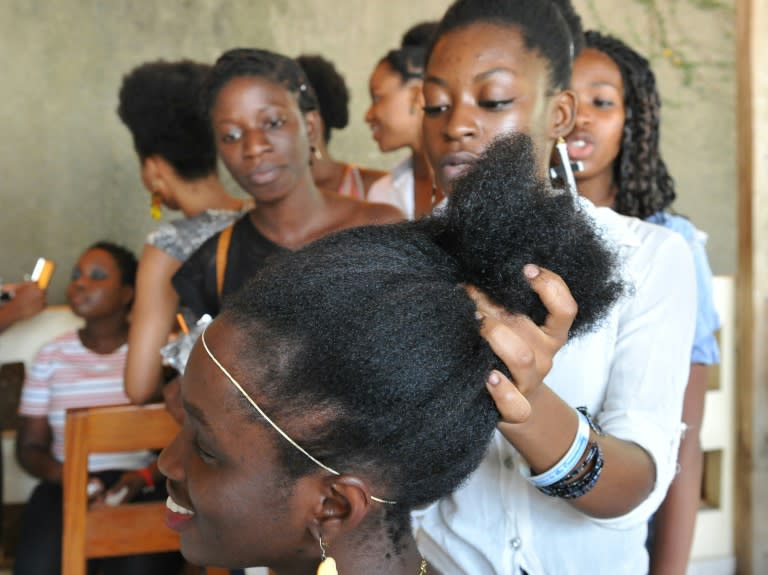S. African school told to halt 'racist' hair policy

A South African school was ordered Tuesday to suspend allegedly racist hairstyle regulations after black pupils said they had been called monkeys by teachers for wearing banned 'afros'. Local education authorities in Gauteng province gave Pretoria High School for Girls 21 days to re-assess its rules after protests by students triggered a public dispute over alleged racism. The prestigious school in the capital Pretoria was historically attended by whites only but it admitted black children following the end of apartheid in 1994. Some pupils said they were forced to chemically straighten their hair and not wear afro hairstyles that were deemed untidy. After visiting the school on Monday for talks with senior staff and students, provincial education minister Panyaza Lesufi said a probe into the allegations would be launched. "Learners feel that they are not allowed to wear Black hairstyles, such as Afro. Specifically, the school policy limits the length of the hairstyle," the ministry said in a statement. "Some educators tell them they look like monkeys, or have nests on their heads." At the weekend, defiant black students with afro hairstyles and braids held a protest at the school against the long-standing regulations. Politicians quickly weighed in, with the two largest opposition parties criticising the government-run school. The ministry statement said "the code of conduct... must be reviewed and the clause dealing with hairstyles should be suspended in the meantime." It also accused the school of a heavy-handed response for calling in police and armed security guards to deal with protests. - Growing backlash - Other allegations raised by students during Monday's talks included being banned from speaking ethnic languages on school premises and suffered discrimination from white teachers and pupils. A white student allegedly told a black student that she did not need a pencil as her finger was black enough, and white students allegedly complained about taught "kaffir" music, using an insulting term for a black African. Former pupil Mishka Wazar, 19, told AFP that controversies over racism at the school had been brewing for years. "During my time there were problems around similar issues, but no one ever took it to the level these girls have done," said Wazar, who is now at university. "We would write letters and our complaints were largely ignored." Wazar, who left the school last year, said the rules must be adjusted to fit changing demographics. She said she had witnessed black girls being pulled aside from school assembly and criticised for their hair. "The teacher would usually tell them to fix their hair... make it smooth," she said. "Most of these rules are really hard to adhere to if your hair is not of a certain texture." Other alumni have also rallied behind the students, with one group writing to a university online newspaper to express their anger over "racism, bullying and patently race-based shaming of black women's bodies by staff." "We pledge our support to the crop of young women leaders who have brought national attention to issues we are sorely aware are rampant not only at Pretoria High School for Girls," the letter said. South Africa is still grappling with racial issues 22 years after the end of white-minority rule, with bitter race rows erupting regularly in politics and on social media. Student activism played a central role in the fight against apartheid, with the massacre of pupils by white police officers in 1976 seen as a key date in the country's tumultuous history. The students had gathered in Soweto township to demonstrate against an order that all schools could only teach in the Afrikaans language used by whites.

